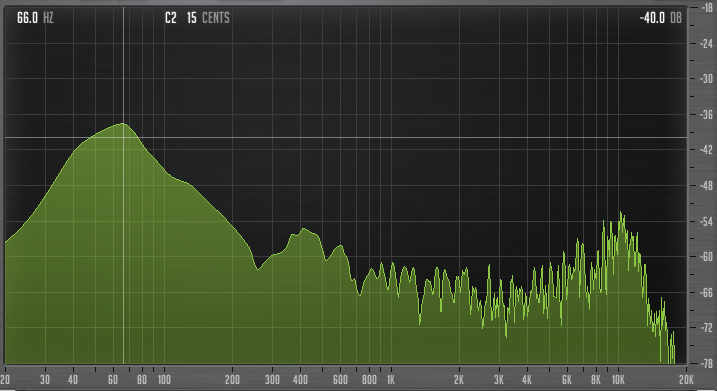

Be careful here tho, cause this is the area where your bass sound also needs space to fit in. If you feel your kick is lacking thickness and “thump”, I usually boost the areas around 120hz. I personally like to cut this area a bit on these kind of kicks to make it cleaner and tigher sounding. Some kicks come with something that I call “mud” around the 400hz range. Remember, there’s no right or wrong way to EQ – If it sounds good, it sounds good! Around the 6-700hz range I usually find most kicks causing a bit of annoyance, so I tend to cut this area accordingly to the amount of “boxiness” that your kick is creating here. I personally like a lot of presence in my kicks, which is why I always try to boost the 4khz range where you can bring up a bit of the attack of the kick to help it cut through your mix more easily. Depending on your choice of kick drum, I often roll off everything over 16khz to remove high harshness that tend to annoy your ears if its too loud. The mid and hi-range of your kick is where the character of your kick is sitting most of the times. When you’re happy with your choice of kick drum and moving on to the bass line(s) and other low-end related elements, then make sure nothing overrides the kick gain wise.ĮQ is truly your best friend when it comes to tweaking your kicks. Once you’ve chosen your kick, set the volume with just a few dB of headroom to start off with. Music Radar have a selection of 62,000+ samples to get you started! Instead look for good kick samples on well established sample portals or use a good kick drum synthesizer and do your tweaks from there! Why choose a lame kick drum sample and spend multiple hours trying to make it great? You may succeed or you may not, nonetheless it will in most cases just kill your motivation before you get there. Start off with choosing wisely your kick drum.


 0 kommentar(er)
0 kommentar(er)
